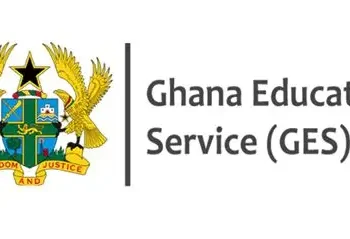Ghana’s financial sector, once rocked by a severely destructive banking collapse that left the country grappling with a cleanup bill exceeding GHS 20 billion, now faces a new wave of disquiet.
Bright Simons, the Honorary Vice President of the IMANI Centre for Policy and Education, has sounded an alarm over a worrying trend — privileged credit arrangements being granted to bank directors.
According to Bright Simons, these insider-friendly deals not only echo the vulnerabilities that once led Ghana to the brink but also point to an urgent need for heightened oversight and reforms by the Bank of Ghana (BoG).
“My jaw dropped to the ground upon learning about the juicy credit deals some banks are packaging for their Directors in Ghana.
“The reason being that if you, an ordinary Joe, walks into a bank (or similar financial institution) this morning and ask for a loan, the nice officer would quote an interest rate of anywhere between 30% and 60% (!) depending on where the dial falls after keying in your data”.
Bright Simons, Honorary Vice President of IMANI Centre for Policy and Education
For Bright Simons these rates are not only unattainable for the average borrower but also a stark contrast to the cushy rates some directors enjoy — a privilege stemming solely from their position within the institution.
He indicated that to many Ghanaians, this emerging practice is reminiscent of the events that led to the banking sector’s near-collapse, adding that following the clean-up exercise, over 400,000 individuals and entities found themselves stranded, losing access to their funds or businesses due to the sudden collapse of some banks.
The Honorary Vice President of IMANI, a leading policy think-tank, pointed out that ultimately, it was taxpayers who bore the brunt, with over GHS 20 billion funneled into resuscitating the financial sector — a staggering bailout orchestrated by the government and the BoG to stabilize an industry teetering on the edge of ruin.
This bailout was meant to usher in a new era of fiscal discipline, compliance, and enhanced oversight, however, Bright Simons noted that the lure of easy profit and special favors for the well-connected appears to be back on the table, casting a long shadow over Ghana’s financial recovery.
BoG’s Lax Oversight
The BoG, having spearheaded the reforms intended to prevent such a disaster from recurring, faces criticism for lax oversight and apparent blind spots.
According to Bright Simons, the fundamental purpose of its regulatory tightening post-cleanup was to prevent “fat cat” banking— insider deals and preferential treatment for a select few — a practice that fueled mismanagement and precipitated the need for the costly bailout.
As he rightly noted, “Banks these days are actually like public utilities“, adding that they serve a broad spectrum of the public, who depend on the sector not only to protect their deposits but also to facilitate business loans, housing finance, and personal lending at fair, regulated rates.

Bright Simons raised critical questions about the ethics and integrity of corporate governance among bank directors who, as primary stewards, are expected to uphold high standards and foster trust within the institutions they oversee.
“But if Directors, the first bastions of corporate governance in any bank, are getting such juicy deals from management, how sure can folks be that they won’t condone what they shouldn’t? That they won’t turn a blind eye to larger-scale underhand dealings?”
Bright Simons, Honorary Vice President of IMANI Centre for Policy and Education
The Cost of Bank’s Directors Privileges
For Bright Simons, this is everyone’s business. He noted that the privileges extended to bank directors come at a cost to ordinary Ghanaians, not just as taxpayers who ultimately underwrite the banking sector but also as consumers who suffer under high interest rates and inaccessible loans.
He also noted that Ghanaian banks that adhere to stringent corporate standards and operate with integrity are effectively punished by a system that tolerates such discrepancies.
Bright Simons argued that the Bank of Ghana needs to elevate its enforcement to ensure that the sector remains stable, fair, and resilient to future shocks, asserting that the public’s confidence in the banking system relies on strong oversight, uncompromising governance, and equality of treatment across all banking tiers.
Without these pillars, Ghana risks revisiting the economic turmoil and massive bailouts of the past — an outcome that would likely deepen public distrust in financial institutions and regulators alike.
Ultimately, Bright Simons’ pointed observations reflect a broader truth: Ghana’s banking sector cannot afford a lapse in regulatory vigilance. The staggering cost of the last cleanup, whether GHS 25 billion or GHS 35 billion, underscores the stakes.
The BoG’s role, Bright Simons implied, is not merely to act as a watchdog but as a guardian of public trust. If banks are to act in the public’s best interest, then the practice of offering privileged credit terms to insiders must be addressed with uncompromising resolve.
READ ALSO: Davido Hints At Veering Into Politics























